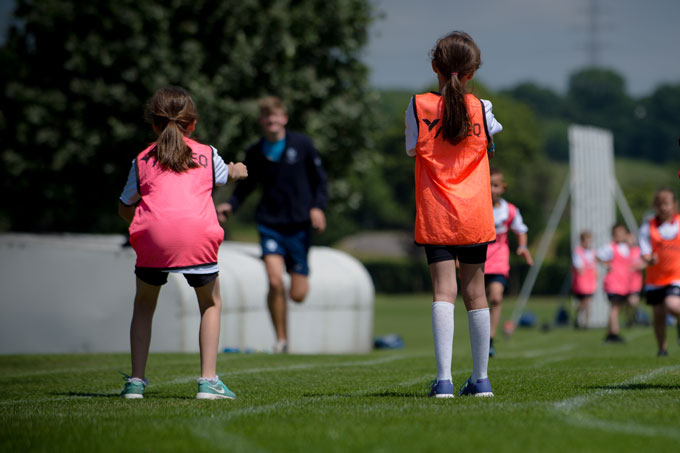Following a recent survey showing that children in England aren’t achieving the recommended amount of daily activity, Dr Laura Gubby looks at how we improve children’s physical confidence.
The BBC has recently reported on findings from a Sport England Survey which suggests that one in three children in England (aged 5-16 years old) do half of the recommended amount of daily physical activity. Government guidelines recommend that children and young people participate in a minimum of 60 minutes of physical activity every day. This should be made up of 30 minutes through the school day, and 30 minutes outside of school.
In many ways, the findings from this survey are unsurprising due to a combination of factors. Previous research has suggested that there tends to be a decreased importance placed on physical education (PE) compared to other school subjects, which has often led to less time being allocated to PE per week in comparison to other areas.
Although physical education is compulsory for all pupils aged four to sixteen, and the government recommends pupils should be provided with a minimum of two hours per week, it is up to schools to decide how much time they devote to PE. Research has also argued that PE tends to be cancelled for a variety of reasons such as music concerts and examinations in hall spaces, and wet weather outside. The problem with this is that this not only decreases the time that children have to be physically active within the school day, but it also means that children have less chance to develop physical literacy and the skills they need to be confident in their physically active bodies and sport outside of school.
Although schools often provide activity spaces during school breaks and lunchtimes and offer extracurricular physical activities to children, engagement in these activities are usually optional, meaning that disinterested children are rarely encouraged to take part during this time. In addition, within the school day, few subjects utilise innovative physical teaching approaches due to space issues, planning and delivery time, or lack of confidence attributed to an absence of training or expertise in this area.
This is not simply a matter of schools doing more since the report also suggests that children and young people are not gaining enough physical activity outside of school either. Out of school, sports and activity clubs can be costly, which may explain why the report asserts that less affluent children are engaged in less daily physical activity than more affluent children. Additionally, parental concern over the safety of their children using public outdoor spaces, particularly in the dark winter months, may also contribute to decreased participation rates, especially for girls (as the report also suggests). As well as a multitude of other factors which apply to specific social groups, a combination of issues including a lack of safe cycle paths, an over-reliance on motor vehicles, and the increased level of social interaction that happens in online gaming and social media, potentially all play a part in the lack of physical activity that children are undertaking outside of school.
Therefore, there needs to be an emphasis placed on initiatives which take into account the needs of local children and young people, but also a revived acceptance of the importance of PE in improving physical literacy and physical confidence. Furthermore, PE needs to engage children in the enjoyment of a variety of physical activities so that they want to participate outside of the school environment (whether in extracurricular activities provided by school, or through other formal and informal structures outside of the school grounds). The increased variety of physical activity within PE and the time needed to teach children skills and confidence in their physical abilities will not be improved whilst the time spent engaging in PE is being decreased.
Dr Laura Gubby is Senior Lecturer in Physical Education, Physical Activity and Sport, in the Faculty of Education.
 Expert comment
Expert comment Jeanette Earl
Jeanette Earl 852
852


